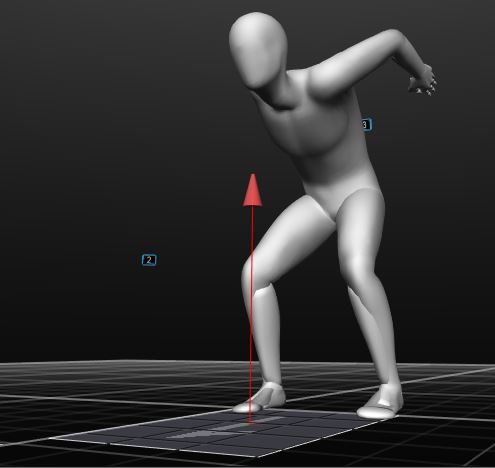Perceptual Cognition: the integration and interpretation of sensory input from the environment and the ability of the brain to process that information for the purpose of environmental awareness and decision making.
Perceptual-cognitive function plays a significant role in how we move our bodies. The information that we are taking in from our environment, ranging from minimal to highly complex, affects our neuromuscular function. Mobility tasks that shift our focus away from the internal (thinking about our mechanics) to the external (looking at the ball or the opponents) will change how we execute any given skill.
In a recent study, kinematic measurements of jumps and landings were taken first with no external stimuli (defaulted as internal focus), then again with the athlete having to track multiple objects (external focus) while performing the jumps and landings. The mechanics were found to be quite different between trials where the athlete has an internal versus an external focus. It is important to note that although athletes showed significant changes in mechanics, they were not always the same. One athlete may have reduced hip flexion, whereas another athlete may have seen no change in hip flexion but had decreased knee flexion. Every athlete is an individual, whose unique cognitive function affects how they move based on where their focus is and how stressful their environment may be. A simply takeaway from this study is that if you want to know how an athlete really moves, you must be able to measure their mechanics in an environment that is as close as possible to competition to mimic the cognitive stresses that occur.
The mental stress experienced during competition is hypothesized to be associated with the fact that most non-contact injuries (i.e. ACL tear) occur in a game versus a practice. Interestingly, the link between cognition and performance is evident when it was observed that team-sport athletes who suffered a non-contact ACL injury had scored significantly lower on the ImPACT cognitive test (used for post-concussion assessment), compared to uninjured athletes.
Knowing the role of perceptual cognition, training must take this into account. Training must provide the athlete with the tools and self-awareness to move in a healthy and efficient way, with these movement strategies effectively translating onto the court or the field. Training in conditions with variations in the environmental stimuli (sport-appropriate, of course) while monitoring their mechanical execution will enhance development and overall performance.



